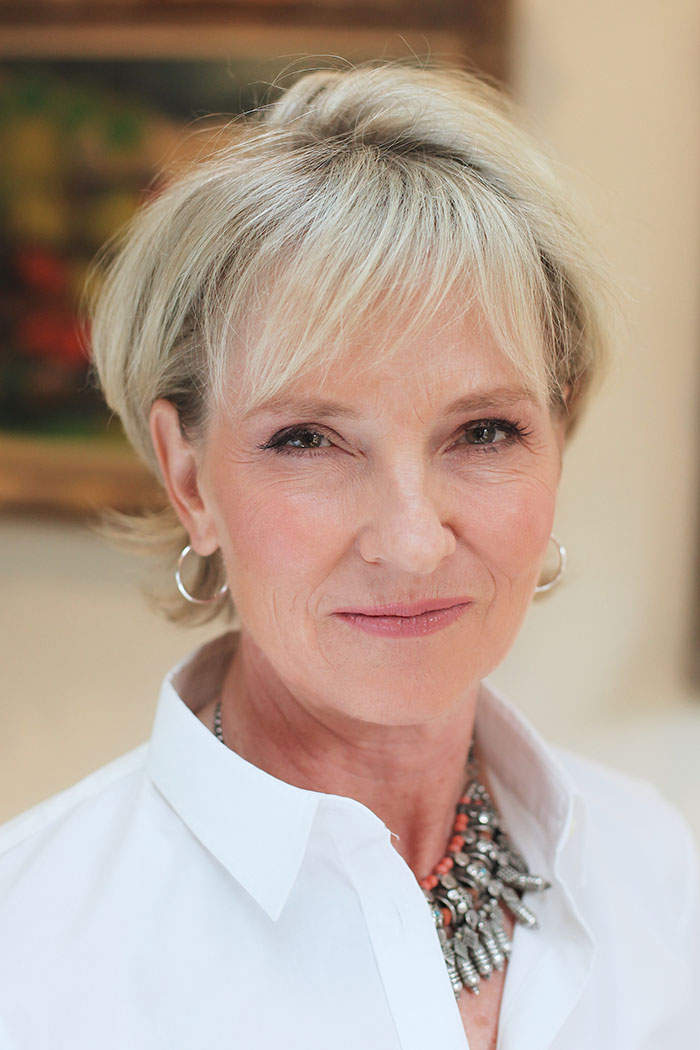- Home |
- Search Results |
- Understanding grief and talking about loss
Understanding grief and talking about loss
Death is one of life’s guarantees – and the grief that follows in its wake. Yet why is death still a societal taboo and grief so misunderstood? In Grief Works, Julia Samuels opens up the conversation in order to revolutionise the way we talk about life and loss.

What is grief?
Grief is the emotional reaction to a loss, in this case, to death. Mourning is the process we have to go through to adjust to the world in which the person has died. As this book illustrates, grief is an intensely personal, contradictory, chaotic and unpredictable internal process. If we are to navigate it, we need to find a way to understand and live with the central paradox: that we must find a way of living with a reality that we don’t want to be true. It forces us to face our own mortality, which we have spent an entire lifetime denying, often through the creation of order – because if we have order, we have predictability and, most importantly, control. Death shatters control; it is brutal in its ultimate power over us, and it is this fact which we find so impossible to accept. To grieve we need to find a way of enduring the pain of the loss, not fighting or blocking it, and for that we need support – the love and support of our family and friends; and we need to understand what the process entails.
The process of grief
Everyone always talks about the process of grief, which is as much the activity that is going on below the surface as above. The image often used to illustrate it is an iceberg: what we see above the waterline – our words, our appearance, our expressions – is only a third of the whole. And the process that is hidden below consists of a tug- of- war between the pain of loss and our instinct to survive. The process is in the movement – the back and forth – between the loss and restoration. Sadness, tears, yearning and preoccupation with the person who has died alternate with present-day tasks, functioning, having hope for the future and having a break from the grief. Over time, we adjust incrementally to the reality of the death; and, as we adjust, we become a little more emotionally available to invest ourselves fully in our present life. This process, which is both conscious and unconscious, is intense at the outset but then grows less so as we learn to better manage our grief.
The paradox of grief
The paradox of grief is that finding a way to live with the pain is what enables us to heal. Coping with grief doesn’t involve immersion theory; rather, it is enduring the pain as it hits us (this often feels like a storm crashing over us), and then having a break from it through distraction, busyness and doing the things that comfort and soothe us. Every time we alternate between these two poles, we adjust to the reality that we don’t want to face: that the person we love has died.
The essence of grief is that we are forced, through death, to confront a reality we inherently reject. We often use habitual behaviours to shield us from the pain of this unresolvable conflict, but these can work for us or against us.
Pain is the agent of change. This is a hard concept to understand. But we know that if everything is going according to plan and we are content, there is no impetus to change anything. If, on the other hand, we suffer from persistent feelings of discomfort, boredom, anger, anxiety or fear in our everyday lives, it usually leads us to question ourselves to find out what is wrong: is it a problem with our relationship or with our work? What is it that needs to change before we can feel content, even happy again?

When someone dies, the change is imposed on us; the pain we feel is heightened, forcing us to adapt to different external and internal worlds.
It is often the behaviours we use to avoid pain that harm us the most. The behaviours that we develop early in life to protect us from emotional pain are our automatic way of coping with difficulties. For some people these default behaviours work well, while others are not so helpful. Talking to a friend when something troubles us is a positive behaviour; numbing our pain with alcohol a negative one. Our task is to differentiate between them while at the same time learning new behaviours that support our capacity to bear and express the pain.
The person who has died feels alive to us, even though we know that in actuality they have died. We envisage their body as if it were alive: we wonder if they are lonely, or cold, or frightened; we speak to them in our minds, and ask them to guide us in the big and little decisions in our life. We look for them in the street, connect to them through listening to the music they loved or by smelling their clothes. The dead person is present in us, yet, at the same time, not present physically. We may have a sense of an ongoing relationship, while knowing that nothing will ever move forward again. When this is unacknowledged or even denied, our minds may become disordered or unbalanced; but when this is understood, our overwhelming feeling will be one of relief.

Alternating ‘letting go’ with ‘holding on’ is something we need to learn to live with. Rituals such as the funeral or visiting the grave give a shape to the letting go, the acknowledgement that this person has died and is no longer physically present. People then assume they must entirely forget their loved one and subsequently suffer guilt for abandoning them; but the relationship does continue, although in a radically different form.
Death steals the future we anticipated and hoped for, but it can’t take away the relationship we had. The connection to the dead is maintained internally through our memories, which are probably the most precious gift we will ever possess; they become part of us, our guides and our witnesses as we carry on with our lives.
We may want to be happy again, knowing it is right and fair, but feel guilty, because somehow it seems wrong and bad. There is often a conflict between our head and our heart; our head knows it was, for example, a terrible accident, but in our heart we feel as if we had done something wrong. There can be a pitched battle between the two, leaving us feeling debilitated and exhausted. These polar opposites need to find a place where they can sit side by side. Understanding that we need to hold both concepts inside us can be liberating.

Society approves if the bereaved person is brave and getting on with things and disapproves if they withdraw and fail to cope.
Paradoxically the grief that should cause concern is one that has been cut short, by self-medicating against the pain, for example. As a society we need to learn to support a healthy grieving, and to help people to understand that each person goes at their own pace.
Our culture is imbued with the belief that we can fix just about anything and make it better; or, if we can’t, that it’s possible to trash what we have and to start all over again. Grief is the antithesis of this belief: it eschews avoidance and requires endurance, and forces us to accept that there are some things in this world that simply cannot be fixed.